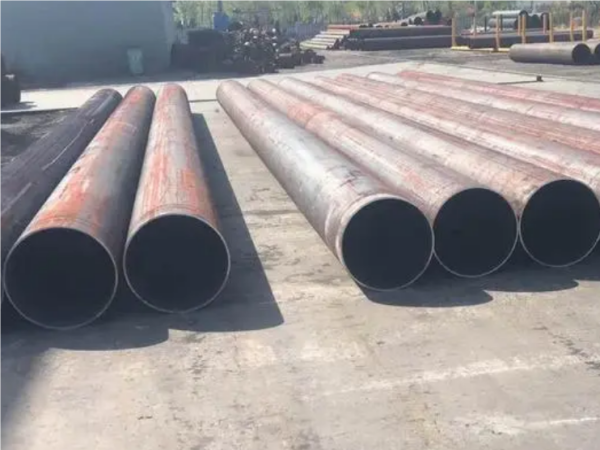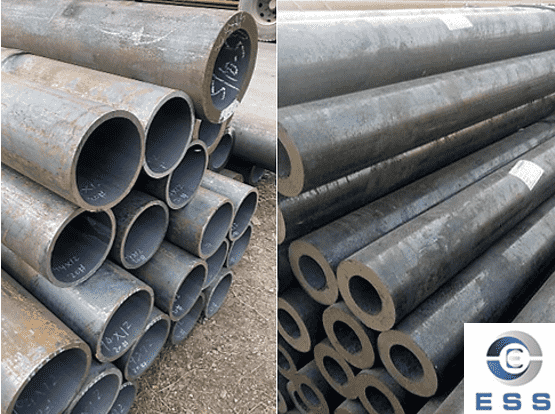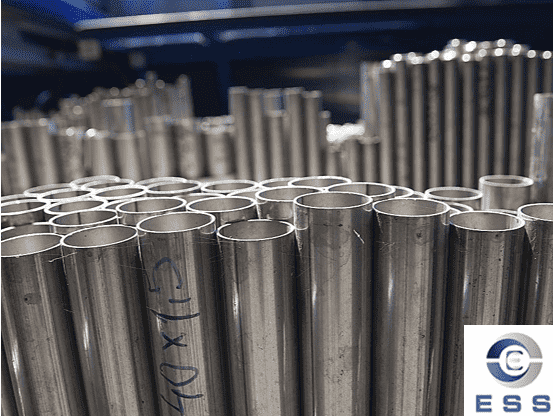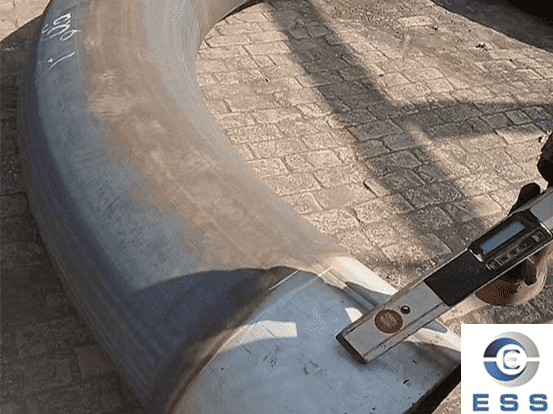Seamless Pipes for the Petrochemical Industry
The petrochemical industry is one of the most important industries in the world, providing the raw materials for a wide range of products including plastics, fertilizers, and pharmaceuticals. Petrochemical plants are complex operations that require advanced equipment and technology to produce these materials efficiently and safely. One of the most critical components of petrochemical plants is the piping system, which must be able to withstand harsh conditions and corrosive materials. Seamless pipes are commonly used in petrochemical plants due to their many benefits, including high strength, corrosion resistance, and ease of installation.
In this comprehensive guide, we will explore the use of seamless pipes in the petrochemical industry, including their properties, applications, and best practices for installation and maintenance.

Seamless pipe for petrochemical transportation
What are Seamless Pipes?
Seamless pipes are pipes without a welded seam, which makes them stronger and more reliable than pipes with welded seams. They are made by piercing a solid billet of steel or other material with a mandrel to create a hollow tube. The seamless pipe is then heated, stretched, and rolled to the desired size and shape. Because there are no welds, seamless pipes have a uniform wall thickness and are less prone to leaks and failures.
Properties of Seamless Pipes
Seamless pipes have several properties that make them ideal for use in the petrochemical industry. These include:
1.High Strength: Seamless pipes are stronger than welded pipes due to their uniform wall thickness. This makes them more resistant to pressure and stress, which is important in petrochemical plants where high temperatures and pressures are common.
2.Corrosion Resistance: Seamless pipes are highly resistant to corrosion, making them ideal for use in corrosive environments. This is critical in petrochemical plants where the pipes are exposed to a wide range of chemical and corrosive materials.
3.Durability: Seamless pipes have a long service life and require less maintenance than welded pipes. They are also less prone to leaks and failures, which can be costly and dangerous in petrochemical plants.
4.Easy to Install: Seamless pipes are easy to install due to their uniform wall thickness and lack of welds. This makes them more efficient to install and reduces the likelihood of errors during installation.
Applications of Seamless Pipes in the Petrochemical Industry
Seamless pipes are used in a wide range of applications in the petrochemical industry, including:
1.Transporting fluids: Seamless pipes are used to transport various fluids such as crude oil, natural gas, and refined products within a petrochemical plant. They are also used to transport these fluids from offshore oil rigs to onshore processing facilities.
2.Process piping: Seamless pipes are used as process piping within petrochemical plants to transport materials from one stage of production to another. They are also used for cooling and heating systems, as well as for steam and gas lines.
3.Instrumentation piping: Seamless pipes are used for instrumentation piping, which is used to monitor and control various processes within petrochemical plants.
4.Structural applications: Seamless pipes are used for structural applications such as pipe racks, walkways, and support structures within petrochemical plants.
Best Practices for Installation and Maintenance of Seamless Pipes
Proper installation and maintenance of seamless pipes are critical to ensure their long service life and reliability. Here are some best practices for installation and maintenance of seamless pipes:
1.Proper handling: Seamless pipes should be handled carefully during transportation and storage to avoid damage to the pipe's surface or ends.
2.Inspection: Pipes should be inspected before installation to ensure that they are free from defects or damage.
3.Installation: Pipes should be installed according to the manufacturer's recommendations, including proper support and fastening methods.
4.Welding: Welding should be done carefully to avoid damaging the pipe's surface or affecting its properties.
5.Maintenance: Pipes should be regularly inspected and maintained to ensure their long service life. This includes cleaning, corrosion protection, and repair or replacement of damaged pipes.
Conclusion
Seamless pipes are an essential component of petrochemical plants, providing the strength, corrosion resistance, and durability needed to transport materials and fluids within the plant. Proper handling, installation, and maintenance are critical to ensure the reliability and long service life of seamless pipes in petrochemical plants. By following best practices for installation and maintenance, petrochemical plants can ensure the safety and efficiency of their piping systems.













 Eastern Steel Manufacturing Co.,Ltd not only improve product production and sales services, but also provide additional value-added services. As long as you need, we can complete your specific needs together.
Eastern Steel Manufacturing Co.,Ltd not only improve product production and sales services, but also provide additional value-added services. As long as you need, we can complete your specific needs together.










